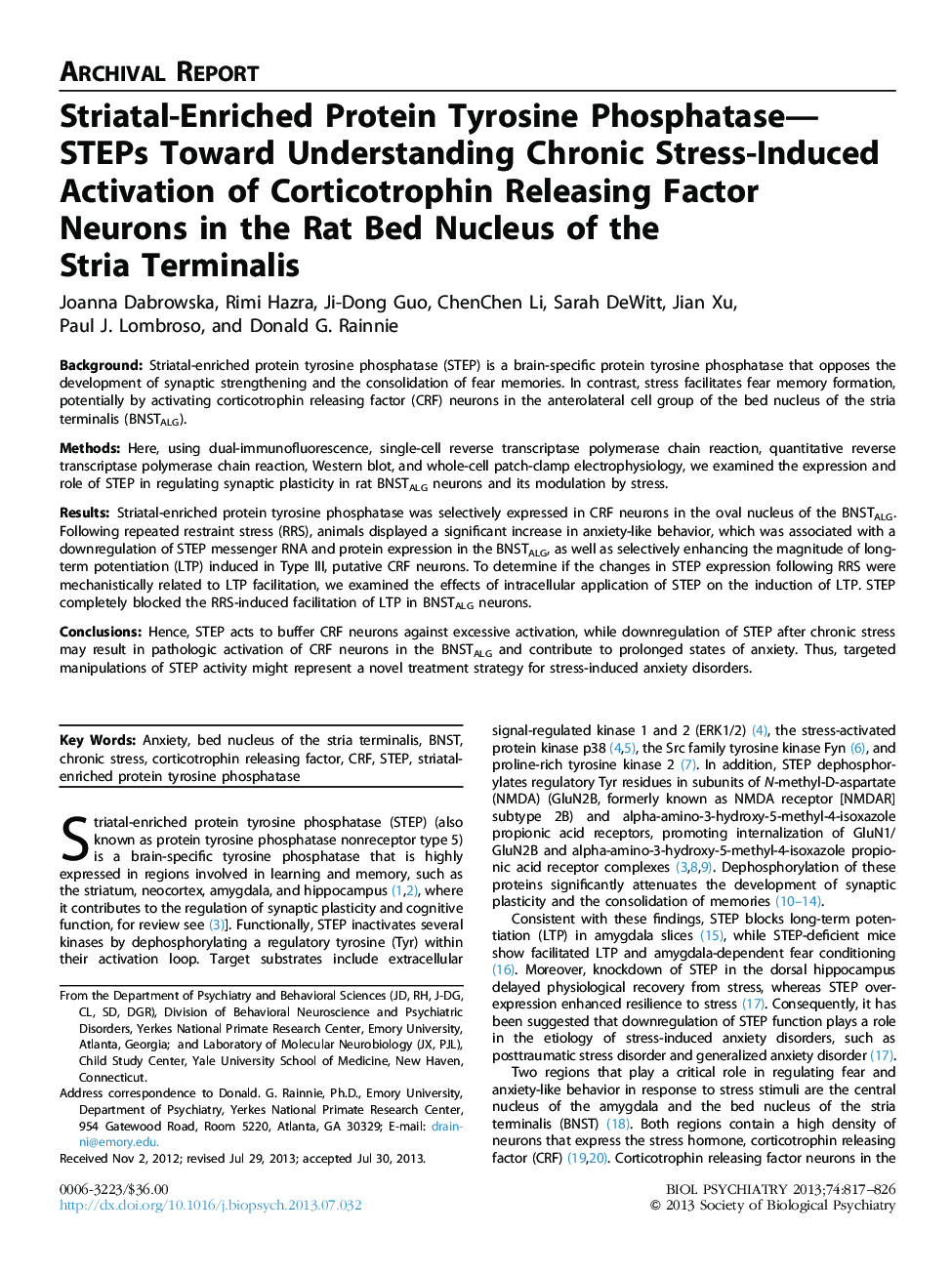| کد مقاله | کد نشریه | سال انتشار | مقاله انگلیسی | نسخه تمام متن |
|---|---|---|---|---|
| 6227722 | 1276471 | 2013 | 10 صفحه PDF | دانلود رایگان |

BackgroundStriatal-enriched protein tyrosine phosphatase (STEP) is a brain-specific protein tyrosine phosphatase that opposes the development of synaptic strengthening and the consolidation of fear memories. In contrast, stress facilitates fear memory formation, potentially by activating corticotrophin releasing factor (CRF) neurons in the anterolateral cell group of the bed nucleus of the stria terminalis (BNSTALG).MethodsHere, using dual-immunofluorescence, single-cell reverse transcriptase polymerase chain reaction, quantitative reverse transcriptase polymerase chain reaction, Western blot, and whole-cell patch-clamp electrophysiology, we examined the expression and role of STEP in regulating synaptic plasticity in rat BNSTALG neurons and its modulation by stress.ResultsStriatal-enriched protein tyrosine phosphatase was selectively expressed in CRF neurons in the oval nucleus of the BNSTALG. Following repeated restraint stress (RRS), animals displayed a significant increase in anxiety-like behavior, which was associated with a downregulation of STEP messenger RNA and protein expression in the BNSTALG, as well as selectively enhancing the magnitude of long-term potentiation (LTP) induced in Type III, putative CRF neurons. To determine if the changes in STEP expression following RRS were mechanistically related to LTP facilitation, we examined the effects of intracellular application of STEP on the induction of LTP. STEP completely blocked the RRS-induced facilitation of LTP in BNSTALG neurons.ConclusionsHence, STEP acts to buffer CRF neurons against excessive activation, while downregulation of STEP after chronic stress may result in pathologic activation of CRF neurons in the BNSTALG and contribute to prolonged states of anxiety. Thus, targeted manipulations of STEP activity might represent a novel treatment strategy for stress-induced anxiety disorders.
Journal: Biological Psychiatry - Volume 74, Issue 11, 1 December 2013, Pages 817-826